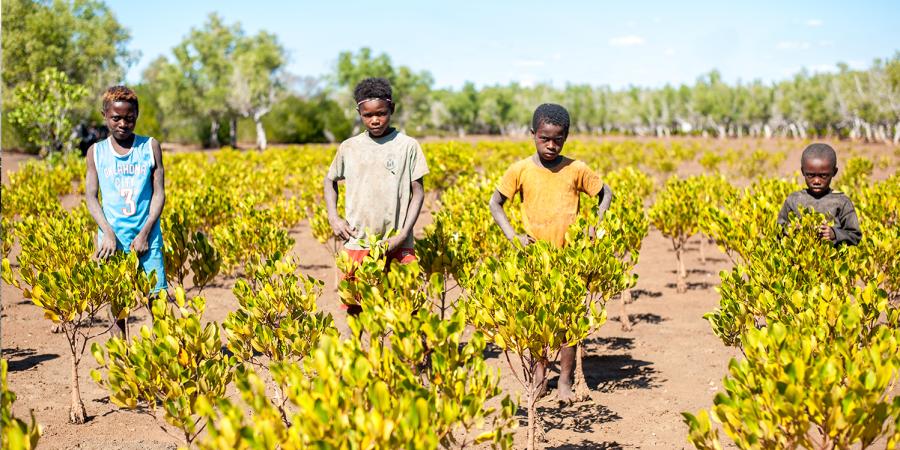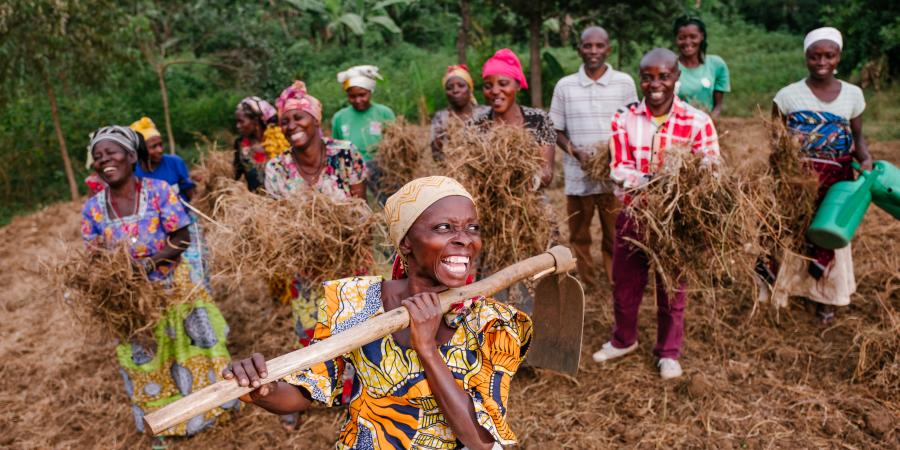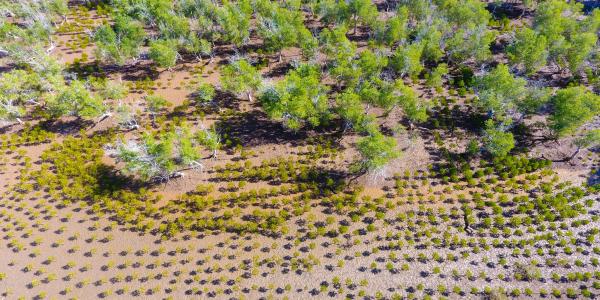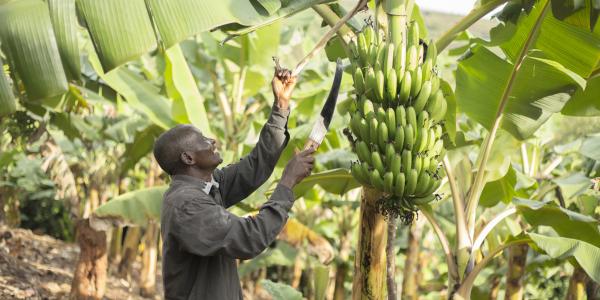

Natural Resources
Natural Resources
Louvain Coopération contributes to the sustainable management of natural resources. We are actively involved in preserving and restoring natural areas, promoting value chains linked to ecosystem services, and improving governance in the management of natural resources.
Our actions also encourage the participation of women and young people in the economy linked to natural resources and promote socio-ecological resilience, particularly in mangroves, national parks and nature reserves.
Good Governance in Natural Resource Management
Good governance is essential for the sustainable management of natural resources. It involves the participation of all stakeholders, including local communities, governments and non-governmental organisations. Transparency, fairness and accountability are key principles that contribute to the sustainable management of natural resources for the benefit of all.
Louvain Coopération: Review, prospects and ambitions
Research, education, awareness
Good governance in the management of natural resources depends in particular on all stakeholders understanding the importance of conserving these resources. This requires awareness-raising and education initiatives, as well as research to better understand the phenomena that have an impact on the conservation of resources.
Restoration and conservation
Empowerment of Women in the Natural Resource EconomyWomen play a crucial role in the management of natural resources, particularly in rural communities. They are often responsible for collecting water, firewood and food. Louvain Coopération is working to strengthen women's participation in the natural resource economy, providing training and supporting initiatives that value their contribution.
.Giving a voice to outlying communities
Mangroves and Climate Change
Mangroves play an essential role in the fight against climate change. They sequester carbon up to four times faster than terrestrial forests, and protect coastlines from erosion and storms. Worldwide, mangroves cover 147,000 km², or 0.03% of the earth's surface (around 5 times the surface area of Belgium). By preserving these ecosystems, we are helping to mitigate the effects of climate change and protect coastal communities. Louvain Coopération is actively working to preserve mangroves in Benin and Madagascar. These coastal ecosystems are crucial for protecting against erosion, filtering water and providing habitats for many marine species. By preserving mangroves, we are also helping to improve the living conditions of the local communities that depend on these ecosystems.
- Mangroves, important allies in the fight against climate change
- Benin: Preserving mangroves to improve living conditions
Preservation of Fishery Resources
Preserving fisheries resources is crucial to the food and economic security of coastal communities. Sustainable fishing practices and the rehabilitation of marine habitats, particularly mangroves, help to maintain fish populations and guarantee a source of income for local fishermen.
Fish stocks: between economic profits and fishermen's cries of alarm
Sustainable Management and Ecosystem Services
Sustainable management of natural resources aims to maintain and improve ecosystem services. These services include water purification, crop pollination and climate regulation. By promoting value chains linked to these services, Louvain Coopération is contributing to both the conservation of biodiversity and the well-being of local communities.
Food security and biodiversity
Protecting biodiversity is essential for guaranteeing food security. Louvain Coopération is committed to preserving plant and animal species that are vital to local food systems. These efforts make it possible to maintain the diversity of crops and agricultural practices, thereby reducing dependence on a small number of varieties and strengthening the resilience of communities in the face of climate change.
Louvain Coopération runs a variety of conservation and sustainable natural resource management projects. These projects include the preservation of mangroves, the promotion of food security through the protection of biodiversity, and the rehabilitation of fisheries resources.
Sustainable development
Sustainable development aims to meet the needs of the present without compromising the ability of future generations to meet their own needs. This includes the judicious use of natural resources to avoid their depletion.
Ecosystem services
Ecosystem services are benefits that humans and other species can derive from natural processes (such as resource production, water self-purification, pollination, etc.).
Social-ecological resilience
Social-ecological resilience is the ability to adapt or transform in the face of changes in social-ecological systems, particularly unexpected changes, so as to continue to support human well-being.
Conservation and protection of biodiversity
Biodiversity, or biological diversity, is the variety of life forms on Earth. Its conservation is fundamental to maintaining ecosystems and the services they provide, such as purifying water, pollinating crops and regulating the climate.
Agricultural value chain
Sustainable agricultural value chain’ means the set of farms and businesses, and their successive and coordinated value-adding activities, that produce raw materials of agricultural origin and transform them into food products, which are sold to final consumers and disposed of after use, in a way that is profitable throughout, has broad positive effects for societý and does not permanently deplete natural resources (FAO, 2015)."
Natural resources provide ecosystem services, i.e. benefits - often indispensable - that human beings and other species can derive from natural processes (such as the production of resources like food or fuel, the self-purification of water, pollination, etc.).
They include biotic resources, such as forests and animals, as well as abiotic resources, such as minerals, water and air. Sustainable management of these resources is crucial to ensure their availability for future generations.
The main challenges include over-consumption, pollution, climate change and biodiversity loss. These factors can lead to resource depletion and irreversible damage to ecosystems.
Natural resources provide ecosystem services, i.e. benefits - often indispensable - that human beings and other species can derive from natural processes (such as the production of resources like food or fuel, the self-purification of water, pollination, etc.). They include biotic resources such as plants and animals, and abiotic resources such as water, minerals and air.
Social-ecological resilience is the ability to adapt or transform in the face of changes in social-ecological systems. It enables communities and ecosystems to adapt to change and continue to thrive despite challenges.
Socio-ecological resilience: rethinking our development model
Sustainable management is essential to ensure that resources remain available for future generations, while minimising negative environmental impacts such as deforestation, pollution and resource depletion.
Our actions
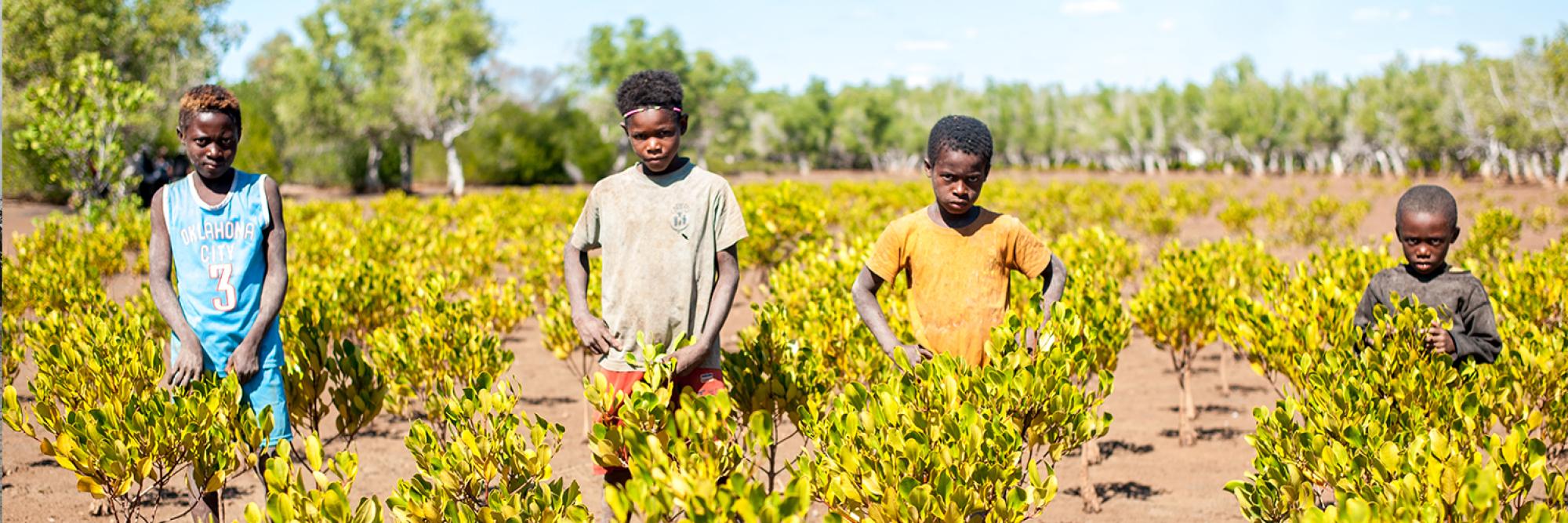

Madagascar
Our aim is to ensure the sustainable management of natural resources, particularly mangrove areas, by working to protect biodiversity, safeguard ecosystem services and promote socio-ecological resilience, with the involvement of local authorities and communities. A great deal of thought is being given to this issue within our consortium of university NGOs, Uni4Coop.
To achieve this, together with our local partners, we are working to improve the governance of mangrove areas, through advocacy in favour of these ecosystems, as well as raising local awareness of regulations.
To strengthen shared knowledge in this area, awareness-raising campaigns on ecosystem development and management plans and environmental education in schools are being set up. We also organise consultation and knowledge-sharing sessions on the proper management of ecosystems. Access to this knowledge requires the ability to read and write. Functional literacy and consciousness-raising courses are therefore offered to adults who have not had the chance to go to school.
To encourage the sustainable use of mangroves, we are working to improve the incomes and living conditions of the people living in these areas. This involves supporting sustainable economic activities that do not destroy the ecosystem, setting up and developing group savings schemes, and supporting fishermen's cooperatives. We also organise exchange visits on mangroves and open days in these areas.
Finally, to encourage the conservation and restoration of mangrove areas, we have set up a "green fund" to support local initiatives. We are also distributing a toolkit of best practices and promoting an economic model that reconciles exploitation and conservation.
Partners : FIVOI, FIAME, OPCI Alokaina, FIDEV, ALEFA MENABE, DRPEB (Direction régionale de la Pêche et de l’Economie bleue) et DREDD (Direction régionale de l’Environnement et du Développement Durable).
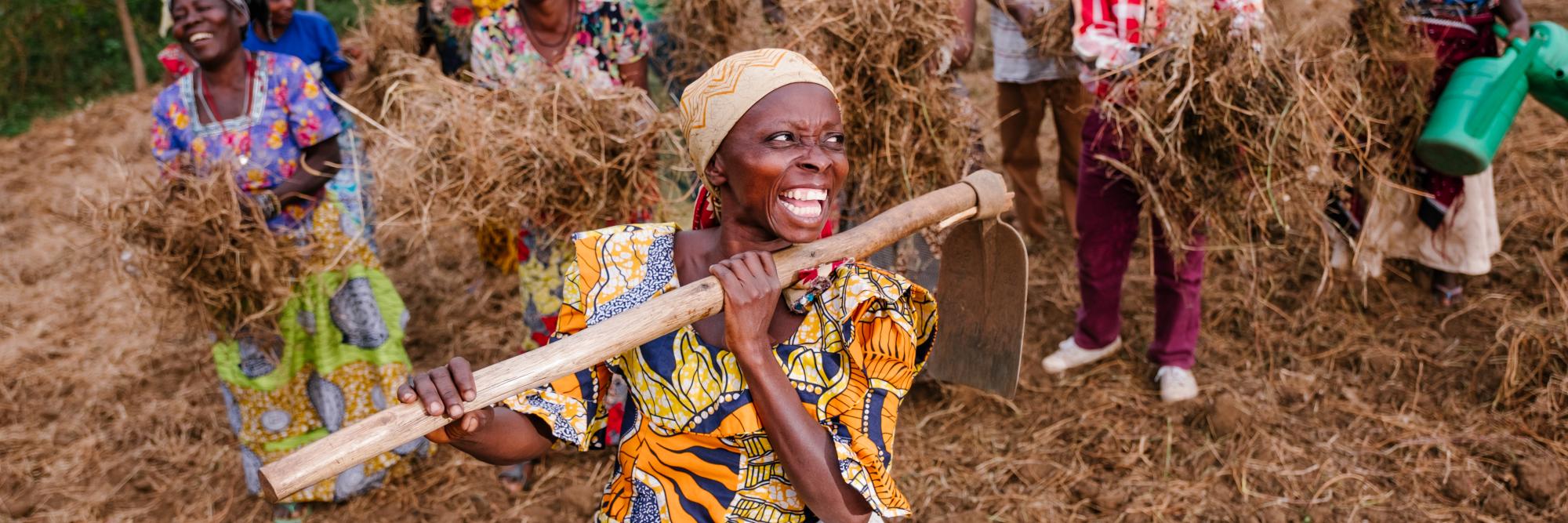

RDC
Promoting a Sustainable Food System
- Project duration: 2022 - 2026
Our Objective:
To promote sustainable and inclusive economic and agricultural models by working across the entire value chain. We promote agroecological practices, support entrepreneurship among young people and women, and strengthen the capacities of local partners for better natural resource management and greater socio-economic resilience.
Our Actions:
- Support for the adoption and appropriation of profitable agroecological practices adapted to local contexts;
- Strengthening the entrepreneurial skills of women and young people in innovative economic sectors;
- Literacy, particularly for women, to strengthen their autonomy and leadership;
- Professionalisation of economic activities through training and technical support;
- Promoting biodiversity conservation and the restoration of natural resources in agroecosystems;
- Close support for vulnerable young people to help them integrate into society and the labour market.
Our Impact:
This project strengthens the economic sovereignty of rural communities while preserving the environment. It promotes the empowerment of young people and women, encourages local innovation dynamics, and improves the resilience of ecosystems and populations to multiple crises.
Plus de vidéo sur le thème +
FAQ
Louvain Coopération runs a variety of conservation and sustainable natural resource management projects. These projects include the preservation of mangroves, the promotion of food security through the protection of biodiversity, and the rehabilitation of fisheries resources.
The main challenges include over-consumption, pollution, climate change and biodiversity loss. These factors can lead to resource depletion and irreversible damage to ecosystems.
Natural resources provide ecosystem services, i.e. benefits - often indispensable - that human beings and other species can derive from natural processes (such as the production of resources like food or fuel, the self-purification of water, pollination, etc.). They include biotic resources such as plants and animals, and abiotic resources such as water, minerals and air.
Social-ecological resilience is the ability to adapt or transform in the face of changes in social-ecological systems. It enables communities and ecosystems to adapt to change and continue to thrive despite challenges.
Socio-ecological resilience: rethinking our development model
Sustainable management is essential to ensure that resources remain available for future generations, while minimising negative environmental impacts such as deforestation, pollution and resource depletion.

